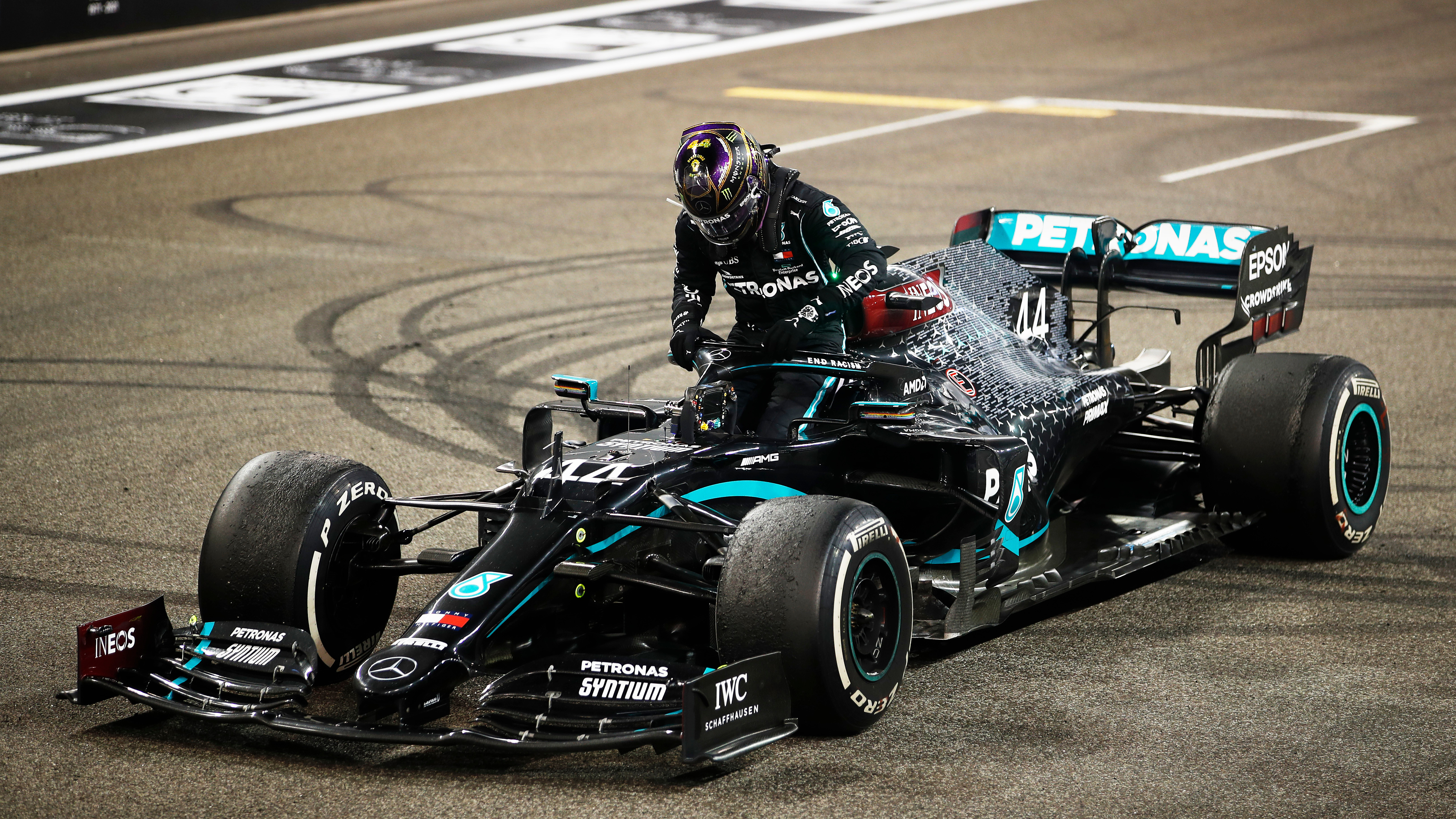Formula One Gets Its First Taste Of Sustainable Fuel
Formula One has made sustainability its new goal, and the next step of that process has begun. The Fédération Internationale de l'Automobile (FIA), which sanctions F1, has delivered power unit suppliers its first round of sustainable biofuels to power F1 cars.
This is part of a pretty ambitious plan that F1 has been pursuing for some time. The series has set a lofty goal at becoming carbon neutral by the end of 2021 and net zero by 2030. And the first step has been the delivery of sustainable fuels to engine manufacturers who will then be able to start working with them.
From Formula 1:
A second-generation biofuel variety – meaning it is exclusively refined using bio-waste, not intended for human or animal consumption – the first barrels are now with F1's power unit manufacturers Mercedes, Ferrari, Renault and Honda, for testing and validation.
The objective is to demonstrate that the technology works and to lead F1 suppliers to develop their own fuels, with the mandatory requirement of 100% sustainable fuels in F1 targeted by the introduction of the new powertrain architecture. From 2021, other FIA championships such as the European Truck Racing Championship will also be able to use sustainable fuel.
In essence, there are a lot of human beings on this earth, and we create a lot of natural waste. As the old adage goes, everybody poops. That waste can be transformed into far more sustainable forms of energy than our traditional fossil fuels while still producing the level of power we've grown used to.
And F1 is only one of the steps on the FIA's ladder. During a big climate meeting on Thursday, the FIA sketched out a plan that involves all 303 of its racing championships in 146 different countries. The goal is threefold:
-
Climate Action: Accelerating net zero transformation,
-
Technology & Innovation: Fostering sustainable and innovative solutions,
-
Sustainable Practices: Driving sustainable change.
That is, generally, easier said than done, and the FIA has faced criticism in the past for being very vague about its plans. This time, though, it has actually released a roadmap dedicated to monitoring and quantifying change across four different areas: within the FIA itself, within its members, within its championships, and within its larger network. Each area is divided into the aforementioned threefold goals.
I'll let you dive into the roadmap itself if you're interested in more details. But I'll run you through what the FIA's plan is for the championships it represents, since that's of the most interest.
Climate Action
-
2021: World Championships to commit to climate action. They will measure their carbon footprint.
-
2025: World Championships to put in place their own individual carbon action plans. All new FIA-sanctioned championships must commit to carbon neutrality.
-
2030: World Championships will reach carbon neutrality.
Innovation and Technology
-
2021: Define specific plans for the electrification and new green technology application in FIA championships.
-
2025: Create a platform within FIA Championships promoting the automobile technology of tomorrow with a special focus on environmental considerations (carbon capture, hybrid, or electric engines). Start the integration of 100 percent sustainable fuels in World Championships.
-
2030: Introduce clean energy in all World Championships cars and infrastructure (electricity, hydrogen, natural gas, biofuels).
Sustainable Practices
-
2021: Include a commitment to sustainable development in the International Sporting Code. All World Championships to develop action plans linked to waste, biodiversity, transport, and energy management. Integrate environmental criteria in the delivery of circuit permits and licenses.
-
2025: All FIA World Championships to reach 3-Star FIA Environmental Accreditation or equivalent. Develop technical standards for all FIA World Championships aiming at reducing the environmental impact of motorsport.
-
2030: All FIA-sanctioned championships to reach 3-Star FIA Environmental Accreditation or equivalent.
While I'll admit that some of those goals are still pretty vague, there is at least a map guiding championships forward in the future. And when it comes to the other elements of the plan—local outreach to serve communities hosting races, education events, etc.—it sounds like there's the potential for real change.
And it all starts now, with these biofuels.
-
-
-
